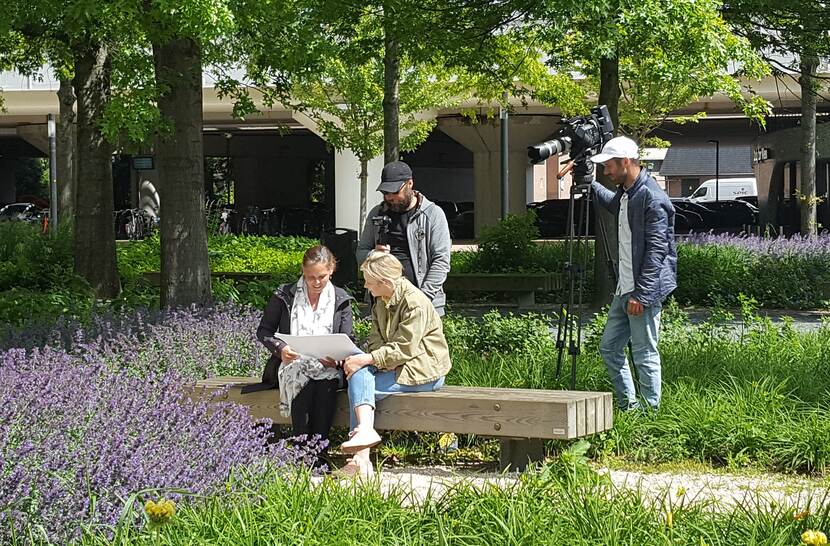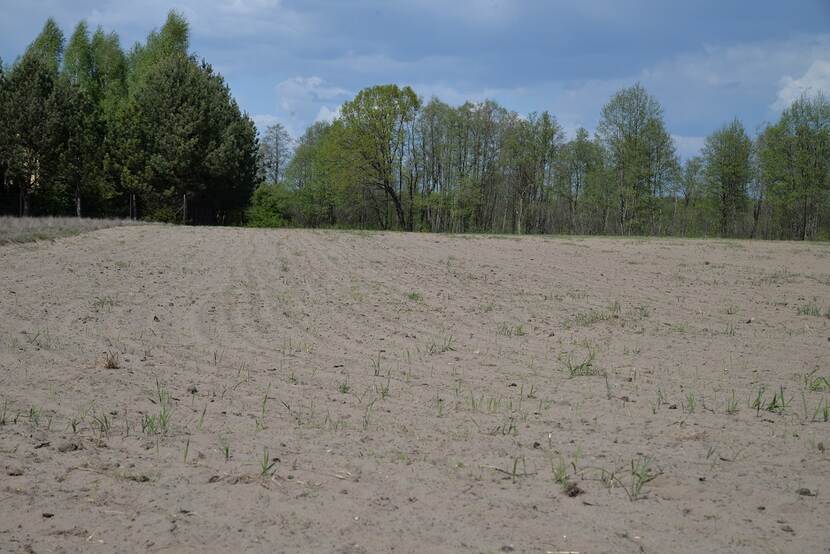Poland, brief agricultural news week 24, 2019
What happened in Poland last week? A brief overview of agricultural news.

Polish gardening TV program visits the Netherlands
This week the Embassy of the Netherlands hosted the crew of a the popular polish programme 'Maja w Ogrodzie' (Maja in the Garden). In this programme journalist Maja Popielarska visits interesting gardens in Poland, explains details of composition, shows interesting plants and interviews the owners of gardens she shows. The aim of the programme is to educate and inspire Polish public with green and gardening. Knowing the Dutch knowledge and experience on flowers and plants, the crew wanted to show a Dutch approach towards green. During the week Maja visited several public and private gardens, but also museum gardens (the magnificent garden “Het Loo” in Apeldoorn but also modern Voorlinden with the garden of Piet Oudolf in Wassenaar). In Amsterdam the hidden garden of museum Van Loon drag the attention of Maja Popielarska due to the fact that it joined the Open Gardens weekend. In the Hague the team inspected the quality of city greenery and talked about the initiative of 'onttegeling' (Operation Steenbreek) in a social garden (Emma's Hof). They experienced the Dutch weather when they had to wait until the rain is gone or for clouds for a better light. But also the deep sound of the often flying plains on the sky was a certain challange for the team.
The results of the visit can be seen on Polish television in a couple of months when the episodes will be ready!
Protests of the Veterinary Inspection
Several roads in Poland were blocked due to intensifying protests of employees of the Veterinary Inspection. The road blocks follow “Black Monday”, which did not result into a reaction of the Ministry. During “Black Monday”, June 10, Inspection Employees from all over the country came to work in black t-shirts as a sign of protest. The protests are aimed at drawing attention of the Ministry of Agriculture for the increasing problems within this service. Dissatisfaction within the Veterinary Service exists already longer. Since September 2018, veterinary inspectors have been informing the Ministry about the deteriorating financial and personnel situation of the veterinary Inspection. They informed the Ministry about a lack of specialists, no candidates for new recruitments due to low salaries, increased working stress and tasks to be executed due to ASF as well as the growing critics of the work of inspectors. As a result, the Union of the Veterinary Inspection Service started an official protest on the 18th of December 2018, which resulted in agreements to improve the situation between the Ministry and the Inspectors beginning of 2019. Today’s protests are a follow up of these agreements, the inspectors demand immediate fulfillment of the promises made by the ministry (including the transfer of additional budget to the inspection), as well as a systematic approach of the improvement of the working conditions and communication between the Ministry and the Veterinary Inspection.

Polish Parliament in favor of labeling products made without GMO
The Sejm, Polish Parliament adopted the proposals regarding the regulation for labeling food and feed products produced without GMO, The new rules also include penalties for falsifying food information. For the adoption of the Act on the labeling of products produced without the use of genetically modified organisms, 421 members in the Sejm were in favor. The new regulation should strengthen the competiveness of Polish food products, including products of animal origin which are produced without GMO ingredients. With the labeling, consumers will have more information about the use of GMO ingredients in food products in order to make a well balanced decision. According to the Polish government, a majority of Poles are in favor or banning GMO cultivation. The proposals will be forwarded to the Polish Senate, they should come in force from January 1st, 2020.

Minimum wage changes
The government has proposed to increase the minimum wage in 2020 by 8.9% to PLN 2450 per month. The minimum hourly rate will be increased to PLN 16. The current minimum wage equals to PLN 2250. The PLN 200 raise – according to the Ministry of Labour, Family and Social Policy – is a result of a consensus accounting for the expectations of trade unions and employers. However, employers are somewhat divided in regard to this issue. Some, argue that this raise is excessive, they comment that such a significant raise could negatively affect many industries and regions where wages are lower than average. The opt for regional differentiation of minimum wages. Others, however, argue that a higher raise may attract employees to the market, which is currently suffering a labour deficit.
Agricultural Atlas
This week, the Foundation of Heinrich-Boll organized a networking event on the occasion of publication next Agricultural Atlas which includes special articles on Poland. The articles on Poland focus more on other functions of agriculture than food production related to ecosystem services, culture, traditions, organic production. Agriculture should support also the stability of the natural environment (soils, pastures and meadows, climate). According to the authors of the articles, Polish agriculture does not adequately fulfil its environmental function. Future financial support should give more focus to multi-functionality of the Polish countryside in addition to its food-production role.
Source: Heinrich-Boll website, conference

Fund for irrigation
A new irrigation program will be launched in agriculture in Poland, initially 400 million PLN will be allocated, but the whole pool is one billion PLN. The program will be first directed to those municipalities that have been most affected by drought in recent years - currently such a report is being prepared. In addition, next year, the Minister of Maritime and Inland Navigation will launch a retention program o in Poland, which is also important for rural areas.
Source: Interview with the Minister of Agriculture and Rural Development